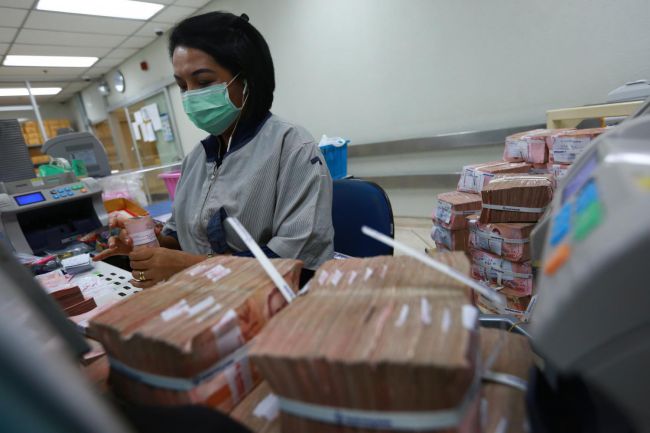BoT preps more measures for baht
2 min read
A woman counts banknotes at Bangkok Bank’s headquarters on Silom Road. The baht has appreciated significantly following the US presidential election results and Covid-19 vaccine development. Somchai Poomlard
The Bank of Thailand plans to implement additional measures to help manage the baht’s appreciation in December as part of a push to forge a new foreign exchange ecosystem.
The central bank expects to implement additional measures as a policy package to properly manage two-way movement of the foreign exchange rate, said Chayawadee Chai-Anant, senior director of the economic and policy department.
There are measures in the pipeline to manage movement of the foreign exchange rate for both the short term and long term, said Ms Chayawadee.
Though she did not elaborate on the details of the measures, relevant factors about the impact on long-term foreign investment in Thailand will be taken into account, she said.
“The Bank of Thailand has recorded hot money [inflows] from foreigners buying local short-term bonds, but this cannot be branded as speculative behaviour, as it could be for liquidity management,” said Ms Chayawadee. “The central bank is requiring registration for foreigners to invest in bonds to monitor such behaviour.”
The central bank recently liberalised foreign currency deposits, increased the investment limit in foreign securities for Thai individual investors and established a bond pre-registration system as part of efforts to curb the rapid appreciation of the baht and forge a new foreign exchange ecosystem.
The authority also wants to build up buffers for business operators to deal with the baht’s appreciation.
Apart from short-term factors, Thailand’s structural economic problems have also affected the baht’s movement.
On average, the baht’s value strengthened by 2.9% against the US dollar between Nov 2 and Nov 27 compared with a 0.4% appreciation in October. The currency has appreciated by 1.1% against the greenback on a year-to-date basis.
The US presidential election outcome and progress on a Covid-19 vaccine have induced a risk-on sentiment, attracting foreign capital inflows to move into emerging markets across the globe.
Separately, the Thai economy contracted at a higher rate in October compared with the previous month due to the fading out of temporary factors and last year’s high base effect.
Private consumption indicators contracted by 1.1% year-on-year after experiencing a marginal expansion of 0.4% in September as the temporary factor of special long holidays ended, the central bank reported.
Private investment indicators exhibited a higher contraction at 4.9% year-on-year compared with September’s 2% contraction.
Public spending also contracted by 6.2% year-on-year from September’s 13.7% growth as a result of the delayed disbursement of current expenditure.






